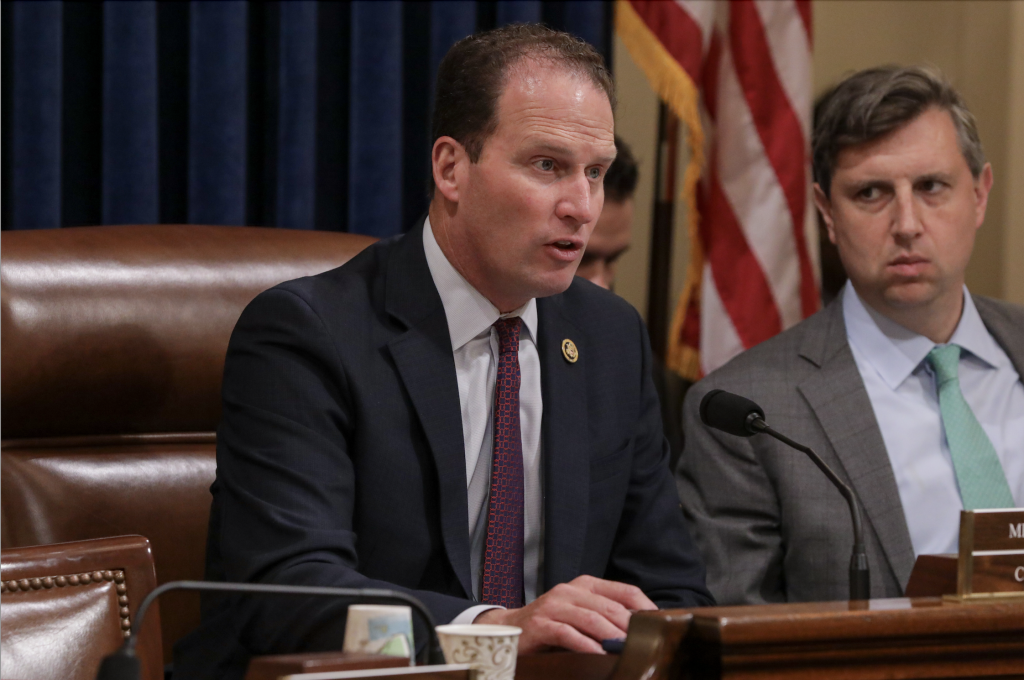Chairman Pfluger Opens Hearing on I&A: “Our Nation Needs an Effective and Efficient Intelligence Enterprise to Keep the Homeland Safe”
June 26, 2024
WASHINGTON, D.C. — Today, House Homeland Security Subcommittee on Counterterrorism, Law Enforcement, and Intelligence Chairman August Pfluger (R-TX) delivered the following opening statement in a hearing to examine the Department of Homeland Security’s (DHS) Office of Intelligence and Analysis (I&A).

Watch Chairman Pfluger’s full opening statement.
As prepared for delivery:
We are holding this important hearing to examine and discuss the role DHS’s Office of Intelligence and Analysis (I&A) plays in helping to safeguard our nation. The United States faces a myriad of threats from state and nonstate actors across the globe.
We are seeing authoritarian regimes, such as China, Russia, and Iran expand their reach across our globe and challenge the sovereignty of our allies and our national security interests.
Our adversaries are not only working to achieve these objectives through conventional military means but are also masterfully accomplishing their goals through cyberspace and by using asymmetric tactics that fall just below the threshold of traditional conflict, more commonly known as gray zone aggression.
We have seen malign actors utilize state-owned companies and their technological products to spy on our nation and gather sensitive data that advances their strategic goals.
Further, the threats posed by violent extremist groups like ISIS, al-Shabab, Al-Qaeda, and others that continue to operate throughout sub-Saharan Africa, the Middle East, and southeast Asia present consistent challenges.
Overall, the threats posed by state and nonstate actors, paired with the Department’s failure to secure our borders, have led our nation down a precarious path that presents a clear and present danger.
Our nation has almost certainly not seen this level of instability since World War II, and these threats will only continue to metastasize as time goes on with weak leadership that invites aggression from our adversaries.
I highlight these troubling developments because they show why now, more than ever, our nation needs an effective and efficient intelligence enterprise to keep the homeland safe, secure, and resilient, while not abusing its authorities or violating the Constitutional rights of Americans.
The men and women that work within I&A are charged with disseminating intelligence to state, local, tribal, and territorial law (SLTT) enforcement agencies and other partners and develop intelligence from those partners for DHS and the IC to ensure our communities stay safe.
Over the years, and across Administrations, I&A has struggled to complete its mission to equip the Homeland Security Enterprise with timely intelligence and information needed to keep the homeland safe.
Systematic and documented failures, as detailed by various reports by the DHS Inspector General, have led to breakdowns in identifying specific threat streams or have undermined public trust.
For instance, I&A’s Overt Human Intelligence Collection Program has raised serious questions and concerns related to the Department’s overreach of its statutory mandate and to potential violations of the fundamental civil liberties of all Americans.
In fact, part of the program was paused after a number of DHS officials raised concerns about its legality. These issues have led to high turnover, no clear leadership or effective oversight, and significant training gaps for its employees. These incidents within DHS are unacceptable and erode the public’s trust in keeping our nation safe at a time when our country faces an elevated threat environment.
It did not help when DHS unilaterally decided to establish a now disbanded Homeland Intelligence Experts Group, an action that continues to raise concerns about DHS’ impartiality and objectivity in furthering its homeland security mission amidst ever-evolving threats.
These concerns were further exacerbated when DHS then decided to rebrand the discredited Experts Group as an “Advisory Board,” claiming that the new board “builds upon” the Experts Group and will represent “diverse perspectives, without regard for political affiliation.”
In an effort to address some of these shortcomings within I&A, members of this Committee have not only conducted robust oversight of I&A’s operations, but also passed various bipartisan legislative measures designed to improve training and transparency of I&A’s activities.
Today, I have asked Under Secretary Wainstein to provide us with an update on the steps the Department has taken to address the long-standing issues associated with I&A that cannot be fixed by surface-level patches.
While I am encouraged to hear that I&A has been undergoing an internal review and reorganization, this cannot be simply reshuffling leadership roles to give the appearance of progress.
Additionally, I look forward to hearing about ways that Congress and DHS can work together to tackle the threats mentioned at the beginning of my statement.
This year marks the 23rd anniversary of 9/11. As we approach this year’s anniversary, I can’t help but remember what George Tenet famously said to the 9/11 Commission. In describing the warning signs leading up in the days before 9/11, he stated that in his world “the system was blinking red.”
I am fearful that we are once again ignoring the fact that the “system is blinking red” and we are failing to take the necessary steps to correct course to safeguard the homeland. I hope and pray that I am wrong in that assessment. However, hearings like today allow Congress the opportunity to conduct oversight and assess our nation’s effectiveness in mitigating the threats posed by a catastrophic attack.
I look forward to the conversation and appreciate Under Secretary Wainstein for speaking with us today.
###
